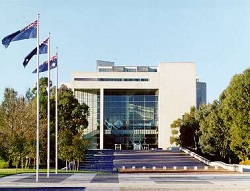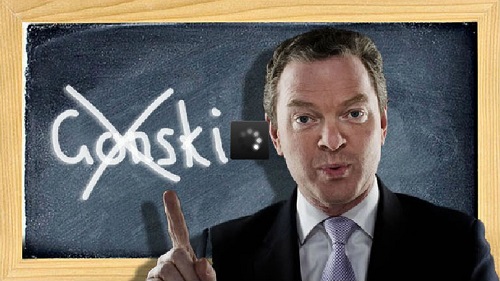As The World Today story makes clear, it is the funding methodology rather than the school chaplains program itself that has been, for the second time, ruled unconstitutional by the High Court.
 When Toowoomba father of six Ron Williams won the original High Court challenge to the chaplaincy program in 2012 the Gillard Government passed ‘catch-all’ legislation which sought to enable to make such grants directly to schools. This ‘bandaid’ solution has now failed. While the court case has only been about the school chaplaincy program specifically a precedent was set that placed a question mark over some 400 other Commonwealth direct funding programs, past and present. I gather these programs had been implemented by the executive without legislation.
When Toowoomba father of six Ron Williams won the original High Court challenge to the chaplaincy program in 2012 the Gillard Government passed ‘catch-all’ legislation which sought to enable to make such grants directly to schools. This ‘bandaid’ solution has now failed. While the court case has only been about the school chaplaincy program specifically a precedent was set that placed a question mark over some 400 other Commonwealth direct funding programs, past and present. I gather these programs had been implemented by the executive without legislation.
It appears that the Commonwealth will now have to use legislation specific to the program, by which means it can make special purpose payments to the states with as many conditions as it likes. This legislation would then have to run the gamut of the senate, which may be difficult, if Labor comes to its senses and opposes the legislation.
I agree with Angelo Gavrielatos, head of the Education Union:
We’ve always opposed this program, considering it a badly designed and quite frankly not in the interests of our kids and what they actually need.
It also compromises the secular traditions of public schools. This money is better directed to specialist, expert support for our students. What our students need are expert trained school counsellors, psychologists and welfare workers.
It’s also important to note that this program has been costed at $250 million. This is at the same time when there’s been a real cut in funding for students with disabilities.
The Abbott Government is so far reserving its position until they examine the ruling, as one would expect.
There is a summary article by Michelle Grattan at The Conversation.
Retiring Senator Louise Pratt has condemned the program, saying that it has driven gay and lesbian children to self harm:
Senator Pratt said an online survey by gay rights group All Out, which attracted 2200 responses, had uncovered dozens of firsthand student accounts that describe chaplains as being “explicitly anti-gay”.
One respondent said their school chaplain had described gays and lesbians as “unnatural, indecent and perverse”. Another said a gay friend had overdosed on medical pills after their school chaplain said being gay was a “degrading sin” that sends people to hell.
“As well as the two stories I have just quoted, students described chaplains helping them to ‘pray the gay away’ and advising them to sleep with a member of the opposite sex to ‘correct’ their same-sex attraction,” Senator Pratt said.
“One very serious story involved a student being told by a chaplain that they should leave home because they had homosexual parents . . . Regardless of the outcome [of the High Court challenge], it is important to see this program stopped.”
Proponents of the program say such incidents would be rare and in breach of the code of conduct under which chaplains operate.
According to Peter Sherlock schools have been able to use the money to employ secular counsellors. In the 2104-15 budget, however, this was narrowed to chaplains from religious organisations alone.
Sherlock, who is Vice-Chancellor at University of Divinity, says that the program recognises that schools have a socialising role in the formation of a child that goes beyond the door of the classroom and the skills and content imparted there. He thinks, however, the chaplains from religious organisations will almost inevitably be motivated to proselytise, and the secular counsellors would be more appropriate.
I couldn’t agree more. Problem is, part of the purpose of the program is to win votes from particular sectors of the church-going community.






